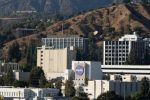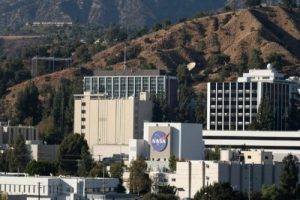Prime Minister Narendra Modi on Tuesday said that his government will ensure more policy reforms to speed up economic growth and remove structural bottlenecks in the Indian economy.
Accordingly, the country will also implement steps to reduce import-dependence and strengthen domestic supply chains.
Furthermore, Modi exuded the confidence that India would get its GDP growth back very soon.
In an online address at the 125th AGM of industry body CII, he said that the country has entered into the ”Unlock Phase 1” which focuses on getting the economy back on track and that the Centre will take every possible step to revive economic growth.
Besides, the Prime Minister pointed out, the Centre had provided immediate relief to the disadvantaged sections of society via the ”Prime Minister”s Garib Kalyan Yojana” in the wake of the Covid-19 crisis. This scheme helps provide free rations to 74 crore beneficiaries.
He said that the Centre has provided financial assistance of Rs 53,000 crore and over 8 crore cooking gas cylinders to the poor.
Additionally, over 50 lakh beneficiaries of the Employees Provident Fund Organisation saw the government deposit 24 per cent of their EPF contributions in their accounts, the PM said.
Modi claimed that India Inc has the ability to bounce back and said that attaining a higher growth level should not be difficult.
In his address, the Prime Minister said that the concept of an ”Atmanirbhar Bharat” rested on ”5 I”s of Intent, Inclusion, Investment, Infrastructure, and Innovation”.
He said that while announcing the relief package during the coronavirus crisis, his government took a long-term view of the economy and announced far-reaching measures to reform the economy.
The reforms announced have been systematic, planned, integrated, interconnected, and futuristic and are all about creating strong enterprises, generating employment, and robust supply chains, the Prime Minister said.
Highlighting the role of MSMEs in the economy, the Prime Minister pointed out that the definition of MSMEs had been changed to foster growth in this sector.
The Centre will not float global tenders for procurement up to Rs 200 crore. This, according to him, would enable more MSMEs to participate in these tenders and promote an ”Atmanirbhar Bharat”.
In terms of agricultural reforms, the Prime Minister highlighted that the Centre had amended the Agricultural Produce Market Committee (APMC) Act to allow greater freedom to farmers to sell their products in the market.
Electronic trading of foodgrains had also been allowed. This, in his view, would remove the dependence of the farmer on middlemen.
He said that labour reforms were being undertaken to help provide a boost to employment and that investment in non-strategic areas had been opened up for private sector participation.
The coal sector was also deregulated to private sector investment and reduce dependence on imports.
Stressing the need to boost the ”Make in India – Make for the World” campaign, the Prime Minister said that there were several products such as air conditioners and mobile phones that could be manufactured in India and reduce dependence on imports.
To stress his point, Modi gave the example of the PPE industry and said that within three months, the sector has grown tremendously from scratch.
According to him, the ”Atmanirbhar Bharat” or ”Self-reliant India” programme allows for a stronger embrace of the global economy by integrating domestic businesses into international supply chains as reliable partners.
“A self-reliant India will integrate with the global economy. The world is looking for trusted, reliable partners and India has that strength and capability,” he said.

























Add Comment